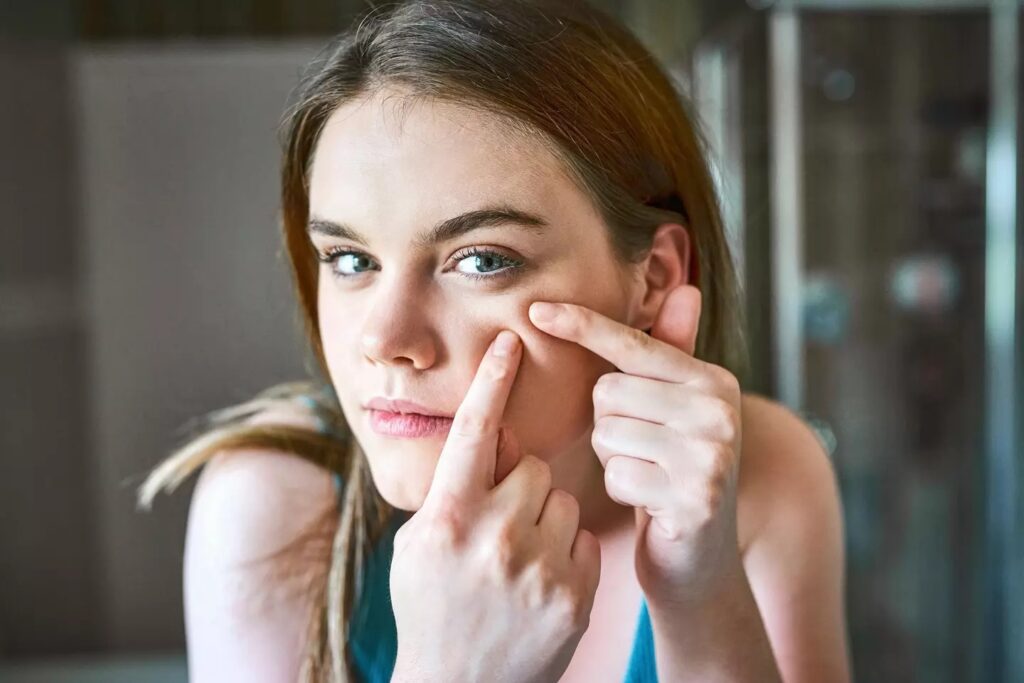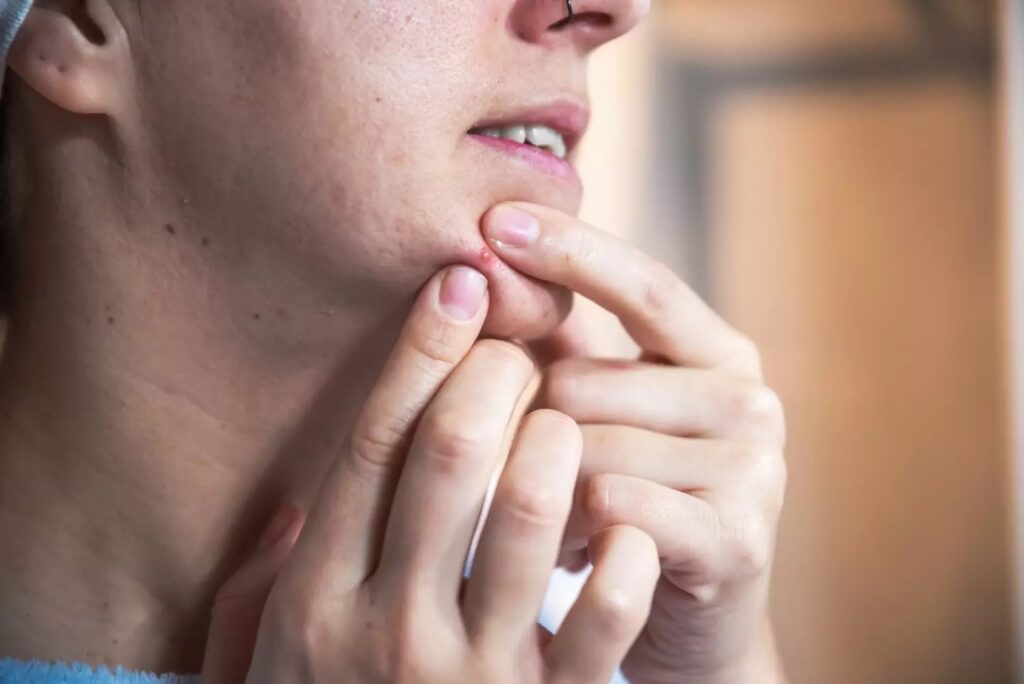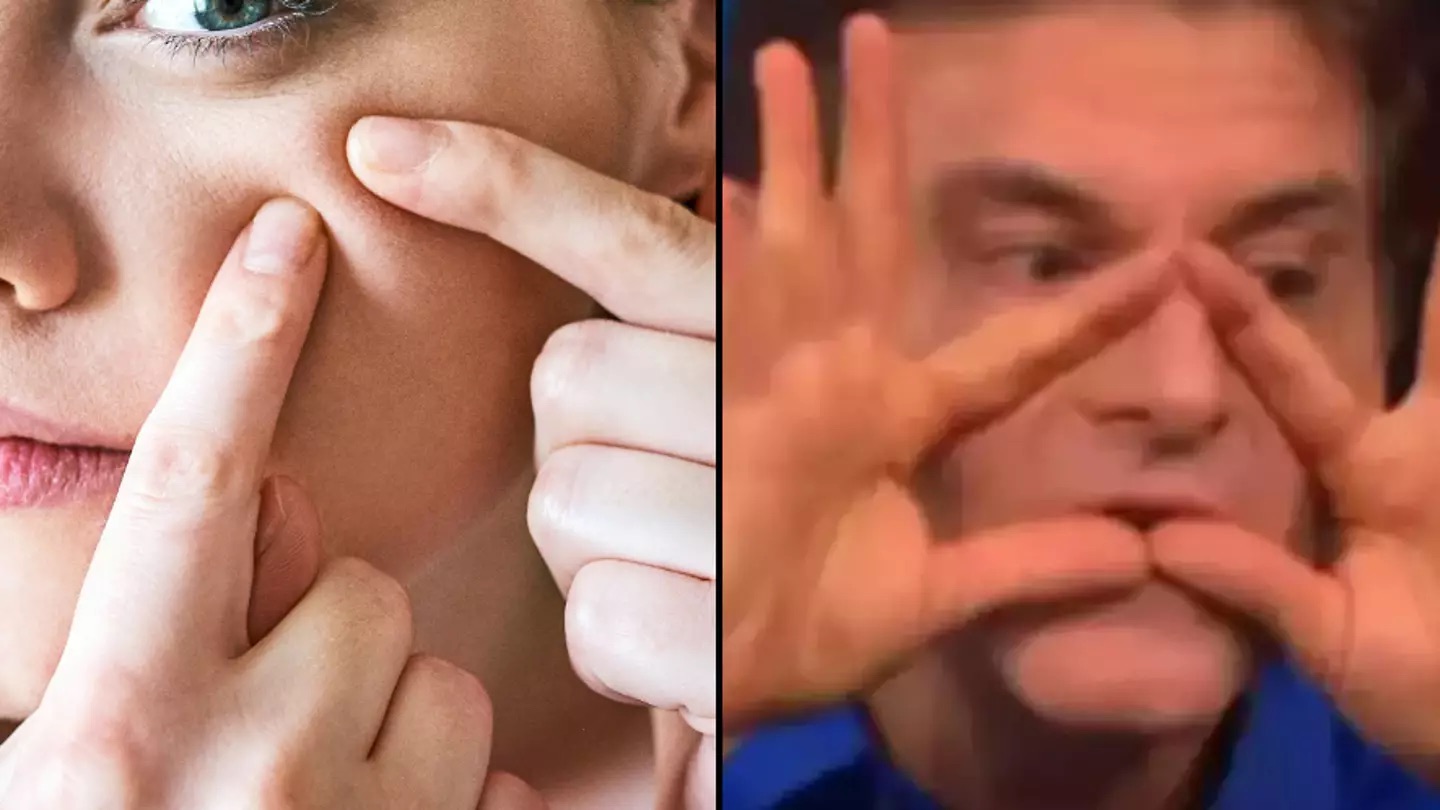People prone to pimples are advised not to pop them as the weather changes. Fluctuating temperatures can lead to breakouts, which can be especially frustrating before a much-anticipated vacation. It’s crucial to address pimples healthily to avoid causing further issues. For advice on skin care and preventing breakouts, many online resources are available, or you can consult a dermatologist for professional guidance.
A well-known danger zone on your face, referred to as the “triangle of death” or “danger triangle,” is at risk of developing a serious infection if not treated properly. Awareness of this area is crucial to prevent complications. If you experience any issues in this region, it’s advisable to seek medical advice promptly. Proper skin care can help minimize the risk of infection in this area. Numerous online resources are available, or you can consult a dermatologist for professional skin care guidance.

What you need to know about the danger triangle
The ‘triangle of death’ refers to the area between the corners of your mouth and the bridge of your nose, forming a triangle. Poor hygiene when popping a pimple in this area can lead to serious infections like cavernous sinus thrombosis (CST) or rare blood clots in the cavernous sinuses, which can obstruct blood flow to the brain. Dr. Joshua Zeichner, an associate professor of dermatology at Mount Sinai Hospital in New York, explains that this area is particularly dangerous due to its proximity to the brain.
To identify this zone, place your index fingers on the bridge of your nose and connect your thumbs to the tips of your index fingers. Everything within this triangle is considered part of the ‘triangle of death.’ To avoid complications, it’s recommended to leave any pimples in this area undisturbed and consult a medical professional if you experience any issues.
Taking care of your skin and avoiding picking or scratching pimples in the “danger triangle” is crucial to prevent serious health risks. Popping pimples in this area can expose the skin to harmful bacteria, leading to infection. It’s generally advised to avoid popping pimples altogether, as it can push the contents further into the skin. If you have issues with pimples in this area, consult a medical professional to avoid complications and receive proper skin care guidance. Protect your skin and maintain a healthy regimen to prevent future issues.

Popping a pimple in the “danger triangle” can potentially cause a life-threatening infection called cavernous sinus thrombosis (CST). This is because the area is close to the cavernous sinus, a large vein connecting the outside to the inside of the brain. If an infection spreads here, it can lead to severe symptoms such as fever, headache, paralysis of the eye muscles, and swelling around the eyes. It’s crucial to consult a medical professional if you experience these symptoms or suspect an infection.
Additionally, picking or scratching pimples in this area can cause scarring or scabs, which may develop into dark spots or post-inflammatory hyperpigmentation. Prioritize skin care and avoid picking at pimples to maintain healthy skin and prevent complications. If you have skin issues, consider consulting a dermatologist or medical professional for proper treatment.

To prevent and treat acne, avoid touching your face, especially in the “danger triangle” area. Instead of popping pimples, use acne medications like Adapalene, Azelaic acid, Benzoyl peroxide, Glycolic acid, Salicylic acid, and Sulfur. These treatments help eliminate bacteria, reduce oil, and exfoliate the top layer of skin, reducing redness and preventing future breakouts.
Additionally, use a water-based moisturizer to prevent dryness and peeling. Avoiding certain foods like dairy, high-fat foods, and sweets can also help manage acne. Establish a skincare routine that includes a suitable face wash, moisturizer, and pimple cream. Prioritize skin care and consult a dermatologist or medical professional if you have concerns about acne or other skin issues.
